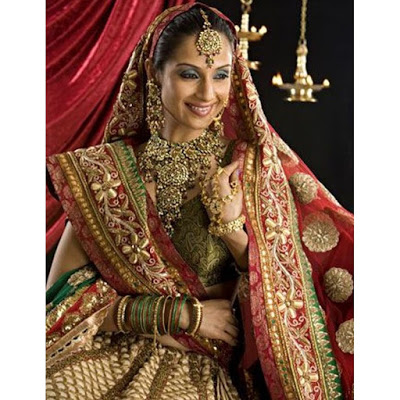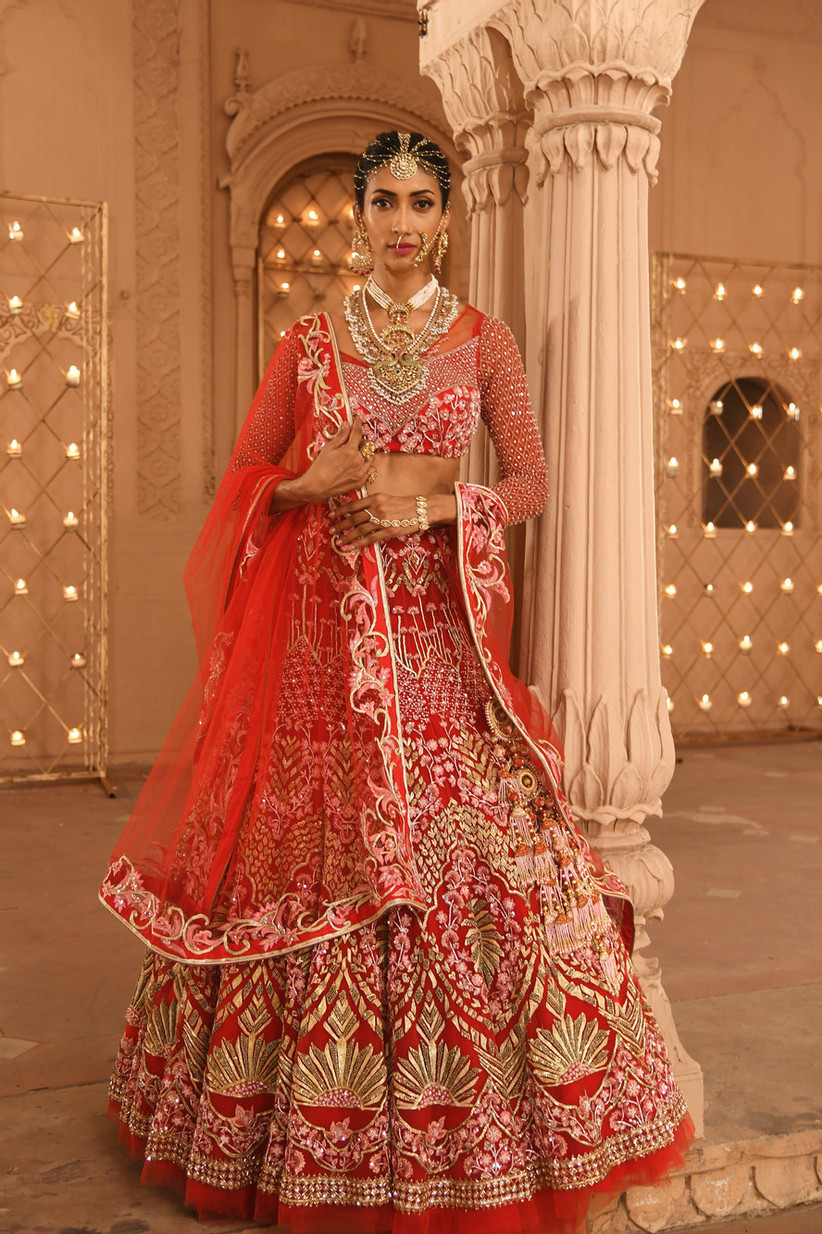ॐ श्री गुरुभ्यो नमः ॐ श्री शिवानन्दाय नमः ॐ श्री चिदानन्दाय नमःॐ श्री दुर्गायै नमः
Source of all Images in this Blog-post : Google Images : ‘Google Image Search’ will reveal the multiple sources of every single image shared here. For more details, kindly see ‘Disclaimer‘
A write-up on Zardozi embroidery work below the following captivating images of Zardozi embroidery on bridal Lehengas & Sarees






Zardozi is an Iranian and Indian-subcontinent embroidery type. Zardozi comes from two Persian words: Zar or Zarin meaning gold, and Dozi meaning sewing.
Zardozi is a type of heavy and elaborate metal embroidery on a silk, satin, or velvet fabric base.
Designs are often created using gold and silver threads and can incorporate pearls, beads, and precious stones.
It is used as decoration for a wide range of applications, including clothes, household textiles, and animal trappings.
Historically, it was used to adorn the walls of royal tents, scabbards, wall hangings and the paraphernalia of regal elephants and horses.
Zardozi in Indian Subcontinent
Gold embroidery has existed in India since the time of the Rigveda, between 1500 and 1200 BC.
It prospered during the 17th century during the reign of the Mughal emperor Akbar, but later a loss of royal patronage and industrialization led to its decline.
The craft began to experience a resurgence in popularity following India’s independence in 1947.
Today Zardozi is popular in the Indian cities of Lucknow, Farrukhabad, Chennai and Bhopal.
In 2013, the GOI accorded Geographical Indication (GI) registration to Lucknow Zardozi.
With GI status, Zardozi artisans, distributors, and retailers in Lucknow and the six surrounding districts of Barabanki, Unnao, Sitapur, Rae Bareli, Hardoi and Amethi can become authorized users of the ‘Lucknow Zardozi’ brand and carry a unique mark of authenticity.
Initially, the embroidery was done with pure silver wires and real gold leaves. However, today, craftsmen make use of a combination of copper wire, with a golden or silver polish, and silk thread.
Iran
Zardozi is an important handicraft in Persian culture. It is known around the country by names such as Zar-douzi, Kam-douzi, Gol-douzi and Kaman-douzi.
Persian Zardozi is of three kinds:
- Some people completely sew the basic fabric with Bakhie in order to produce novel patterns and colors
- Some sew with less density of work on the original fabric. They cross the strings throughout the woof of the fabric and sew them to each other to form a colorfully patterned lattice
- A third way is to sew a variety of patterns on the original fabric with gold and silver strings.